
The topic of caregivers having an elevated risk for physical and psychological concerns is well-documented. Health experts have been particularly interested in the impact of caregiving on caregivers’ mental health, which resulted in study after study that revealed how such a noble and rewarding role is associated with mental health issues such as caregiver depression.
Another aspect of these studies explores how a mental health caregiver has a major role in ensuring that the family or primary caregiver remains less affected by the stresses accompanying a caregiving role.
The Challenges Seniors Face
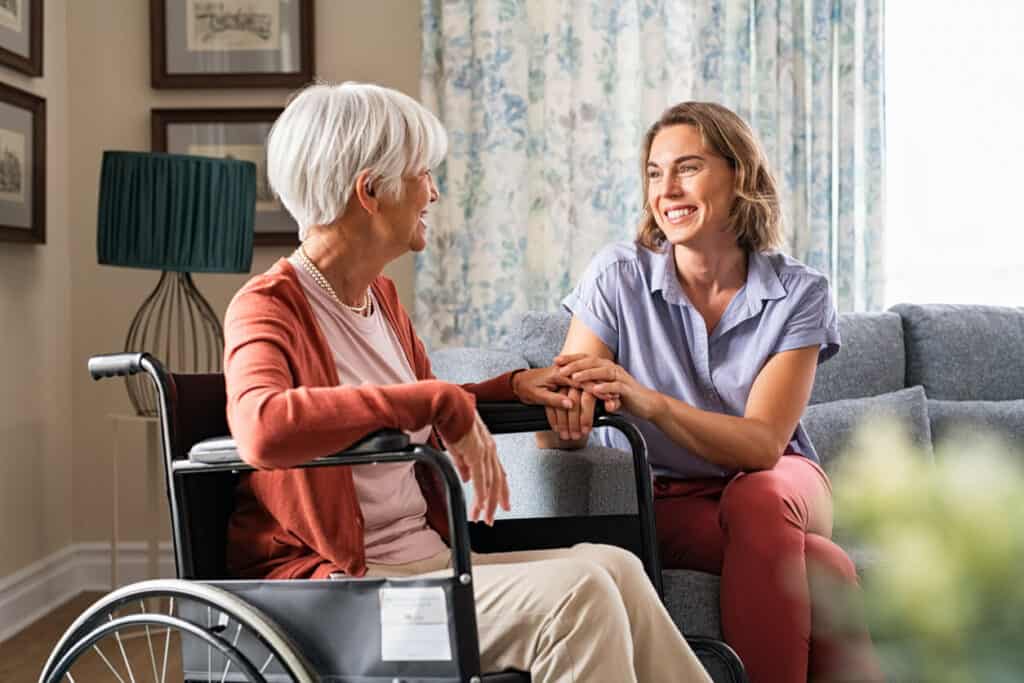
Caregivers at Amy’s Eden understand that work and daily responsibilities influence health; the more physically and time-demanding our obligations are, the more they wear our energy and health down.
The same concept applies to family caregivers; caring for a loved one with minor health needs is easier than for someone with severe conditions who require prolonged supervision, monitoring, and 24-hour care. This cause-and-effect dynamic determines how inconsiderable or huge the impact is on the caregiver’s health.
Physical health issues and their impact on mental well-being
Let’s look at the top five common physical health challenges most older adults face today that demand higher levels of care.
1. Dementia and Alzheimer’s
Every year, up to 10 million people are diagnosed with this neurological disorder globally.
2. Cardiovascular Disease
Diseases of the heart are one of the most prevalent causes of mortality in the U.S. Every 33 seconds, one American dies due to cardiovascular disease.
3. Osteoarthritis
Like dementia, osteoarthritis is a degenerative condition with symptoms that worsen over time. Caregivers must spend more hours for care as the illness progresses.
4. Diabetes
Diabetes management requires the caregiver to monitor the health of a loved one, starting from the diet, medications, schedule of checkups and examinations, and physical activities. All these tasks add to the caregiver’s daily obligations, needing them to do more in a day on top of their work and family responsibilities.
5. Hypertension
High blood pressure contributes to many diseases that cause fatalities, such as stroke, heart attack, heart disease, and atherosclerosis, another common chronic illness in seniors.
Providing for the needs of seniors with these complex conditions is very challenging. One senior caregiver can’t adequately support the mental and physical care needs if the diseases progress to a severe stage.
Two scenarios often unfold in this situation: the family caregivers push themselves too hard and compromise their health, or they decide to relocate their loved ones to an assisted living home or memory care community since the home can no longer provide a thriving environment.
Social isolation and loneliness and their effect on mental health
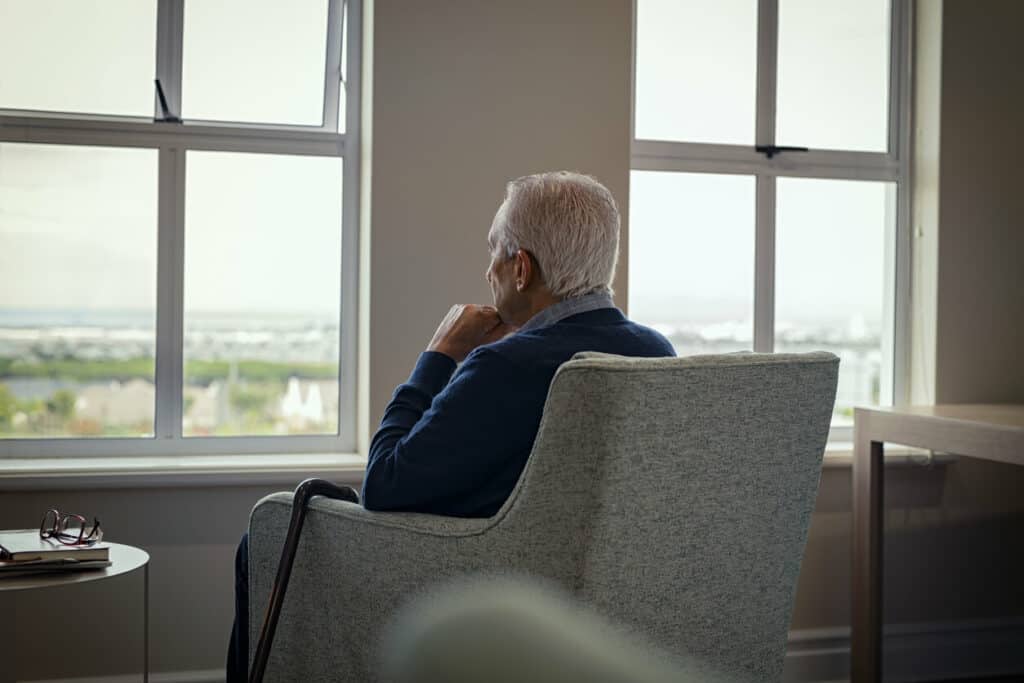
Mental health caregivers support seniors who feel isolated and lonely, adverse emotions the elderly often feel because of the gradual loss of their abilities.
Apart from the physical challenges, aging is often associated with mental health concerns. But this is likely due to combined factors, such as the decline in sensory abilities, loss of muscle strength, and the overall deterioration of one’s abilities.
A study about the effect of the common cold on aging people reports that the common cold can affect a person’s mood, psychomotor abilities, and memory. Participants with colds were less alert, in a more negative mood, and had declining mental skills, such as reasoning.
This study shows how impactful a common cold is to one’s mental ability and behaviors. Imagine the more adverse consequences of conditions, like dementia or heart disease, on mental health for people with already diminishing abilities due to aging — they would be severe.
Other consequential implications of aging and having health conditions include:
- Social isolation: When you’re ill, you always feel exhausted. You’d like to stay home to lie on your bed the entire day. You’d likely cancel your plans to go out with friends, leading to isolation.
- Loneliness: When you’re not physically healthy, you’ll feel sad about your situation. If you live alone, you’d feel lonely and won’t feel like talking with others.
It’s no news that isolation and loneliness are prevalent mental health concerns experienced by many seniors. As many as 50% of older adults over 60 are at risk of social isolation, while 1 in 3 experience loneliness later in life. At worst, loneliness and isolation can elevate the risk of chronic diseases like arthritis.
The stigma surrounding mental health issues in seniors
Only recently did society start to accept and understand mental health problems on a broader level. In earlier years, issues related to mental health were linked to being crazy and having a weak mind. The stigma for many seniors, led to feelings of insecurity about being judged.
Thanks to the increased accessibility to and awareness on social media and online platforms, people have started to accept that mental health is vital for a quality life.
The Role of a Senior Caregiver in Supporting Mental Health
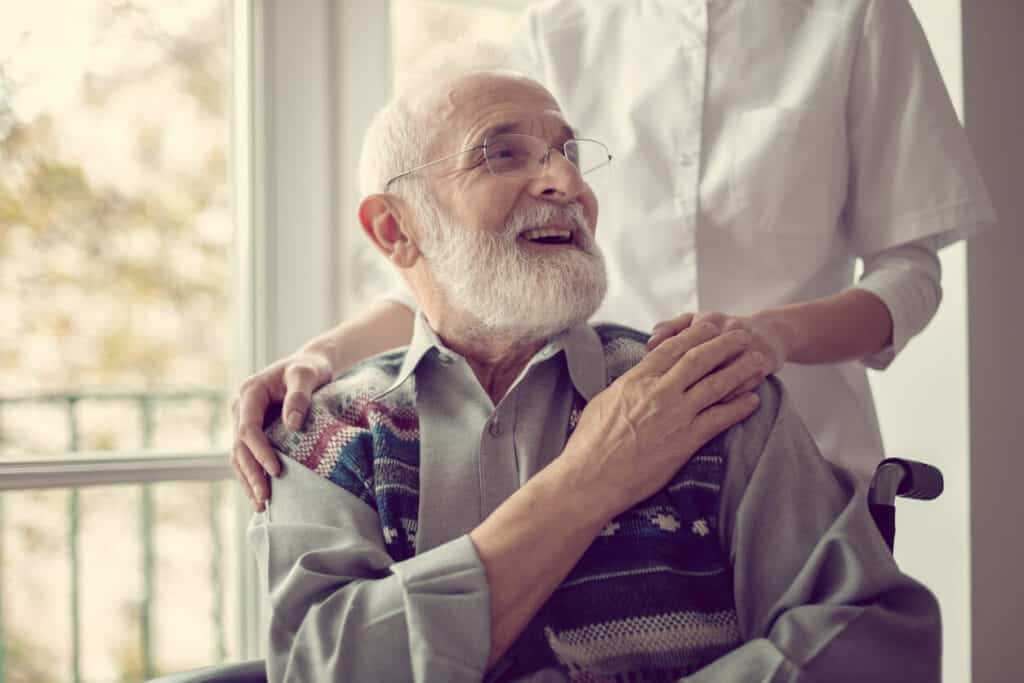
Mental health caregivers have an array of resources, programs, and services at their disposal to support seniors in various ways. Because they are well-informed, staying connected through national and local groups, trained caregivers can assist in several aspects of your loved one’s life to support their mental health, ranging from completing house chores to running medication errands.
They can provide care in three ways.
Delivering personalized care for seniors
A mental health caregiver can support through personalized physical and mental health care in various forms. These are through:
- Companionship care: Caregivers provide social support to seniors to prevent loneliness.
- Memory care assistance: Seniors with dementia feel anxious, lonely, and depressed. A trained memory caregiver can help manage negative emotions by teaching the senior coping strategies.
- Support independence: Seniors who feel they have lost their autonomy may feel hopeless. These feelings can trigger depression. A caregiver can aid with personal care and daily tasks to preserve a senior’s independence, empower them and help regain control of their life.
- Prevent neglect: Seniors who don’t receive care and are neglected by their family members may feel unloved, unvalued, and rejected, leading to depression or suicidal ideation. Having a professional caregiver provide mental health care can counter negative emotions.
Building meaningful relationships with seniors
A mental health caregiver can emotionally and socially support seniors to prevent loneliness, depression, and isolation. They build meaningful, and sometimes life-changing, relationships with your loved one by:
- Being an exercise or morning walk buddy.
- Accompanying them to their checkups and examinations.
- Spending time in the garden, watching their favorite TV shows, and doing other hobbies.
- Providing tailored care specific to their needs.
- Helping them find happiness and humor in life by going together to comedy shows, watching funny videos, music concerts or other events etc.
- Helping them eat a balanced diet.
- Being a good listener when they’re emotional and don’t feel the best.
- Addressing their questions and concerns, and encouraging open communication.
- Doing all of the things they enjoy together throughout the day.
For most seniors, retirement is a phase of slowing down, relaxing, and enjoying life. Having spent their younger years working hard, they’d want to have fun in their golden years. Caregivers help seniors in little ways that seem trivial to others but considerably matter to them.
Creating a positive and supportive environment
Caregivers use an individualized approach in mental health care. Since no two seniors simultaneously experience the same negative symptoms, personalized and individual-centered mental health support is the best care approach.
Here are ways how caregivers can support your loved one.
Cognitive-behavioral therapy in seniors
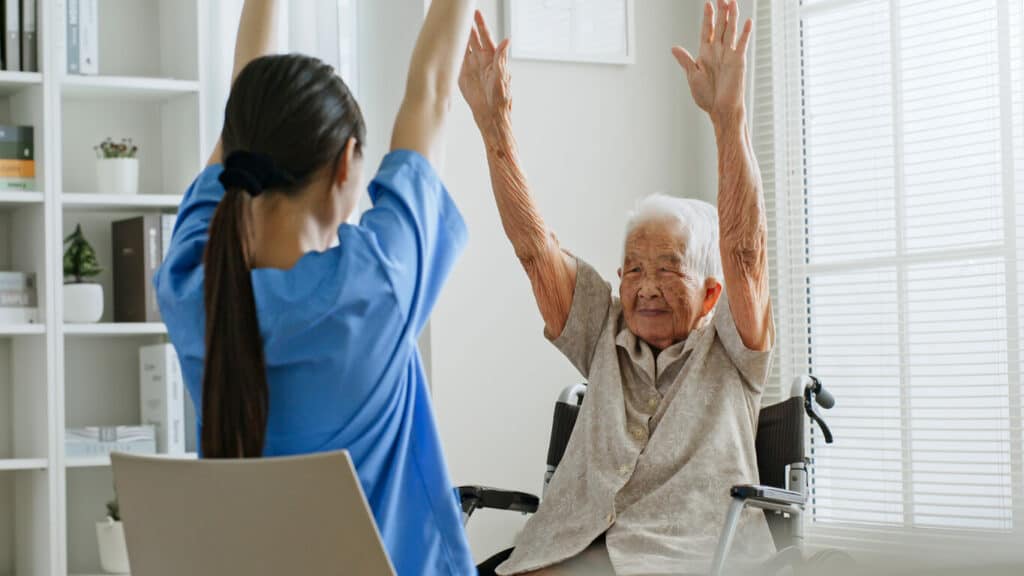
CBT helps treat several psychiatric disorders experienced by seniors aged 65 and older. Seniors work with a therapist to discuss what problems affect their mental health. Together with the caregiver, they design unique programs, set goals to solve these problems and work on achieving them.
Mindfulness as a tool for mental wellness
Forms of mindfulness, such as yoga, tai chi, and qigong, are moving meditation techniques that combine breathing, focus, and physical exercise.
A caregiver can introduce mindfulness to your loved one to help them focus on what they feel and sense in the present moment. This is an excellent method to reduce stress, anxiety, and worries about the future.
Exercise as a treatment for depression and anxiety
Evidence confirms that exercise can improve the mental state and enhance the mood of those with depression and anxiety.
The Anxiety & Depression Association of America (ADAA) stated that exercise when added to therapy, has the same positive effects as medication in decreasing symptoms of anxiety and depression. A caregiver can encourage your loved one to incorporate senior exercise into their daily routine.
The Benefits of Mental Health Care for Seniors
Mental health care is integral to living a happy life. For seniors, receiving such care can have astounding health benefits, such as:
Improved quality of life
Unmet mental health needs result in a poor and unhealthy life.
Reduced hospitalization rates
Stress, anxiety, and worry ripple to mental and physical health decline. Ensuring your loved one is in a good headspace leads to a better mood, an optimistic outlook, and, ultimately, sound overall well-being.
Greater independence and autonomy
Seniors with a healthy state of mind are more self-sufficient in making decisions, making their daily schedules, and accomplishing their tasks.
Choosing the Right Senior Caregiver
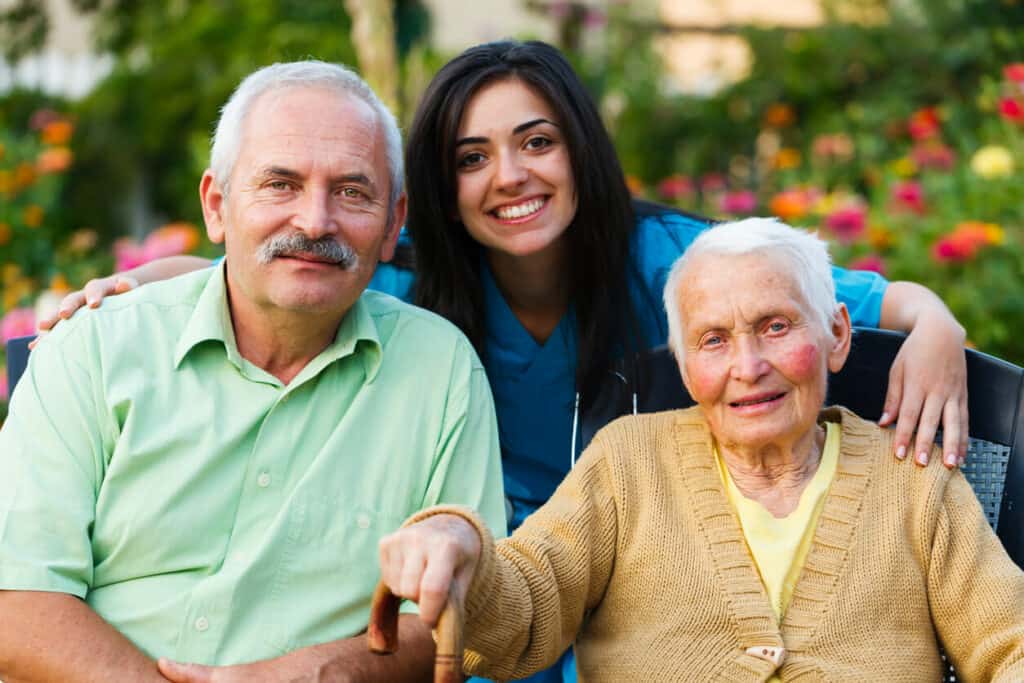
High-quality care is attributed to choosing a senior caregiver who is compassionate and has genuine intentions to help your loved one recover. A few things you need to assess when hiring caregivers for mentally ill individuals are:
1. Experience and training
Many caregivers pursue a specialization, such as dementia care to provide for the needs of seniors with cognitive decline. Depending on your loved one’s health circumstance, you may need to research or ask your doctor’s advice if a specialized caregiver or a generalist is a better option for care.
2. Understanding of specialized needs of seniors
When you hire a caregiver for a mentally ill relative, pick someone who knows how to tailor-fit their service accordingly. Most caregivers undergo basic training, so it takes more job experience to learn how to deliver personalized care. Enlist a caregiver who can adapt to the care needs of your loved one without problems.
3. Compassion and empathy
There’s an emotional aspect to caregiving, so you must find someone compassionate and empathic. Someone who can grasp the difficulties and health challenges of your loved one is a good choice.
Half of the Solution Is Finding the Right Mental Health Caregiver
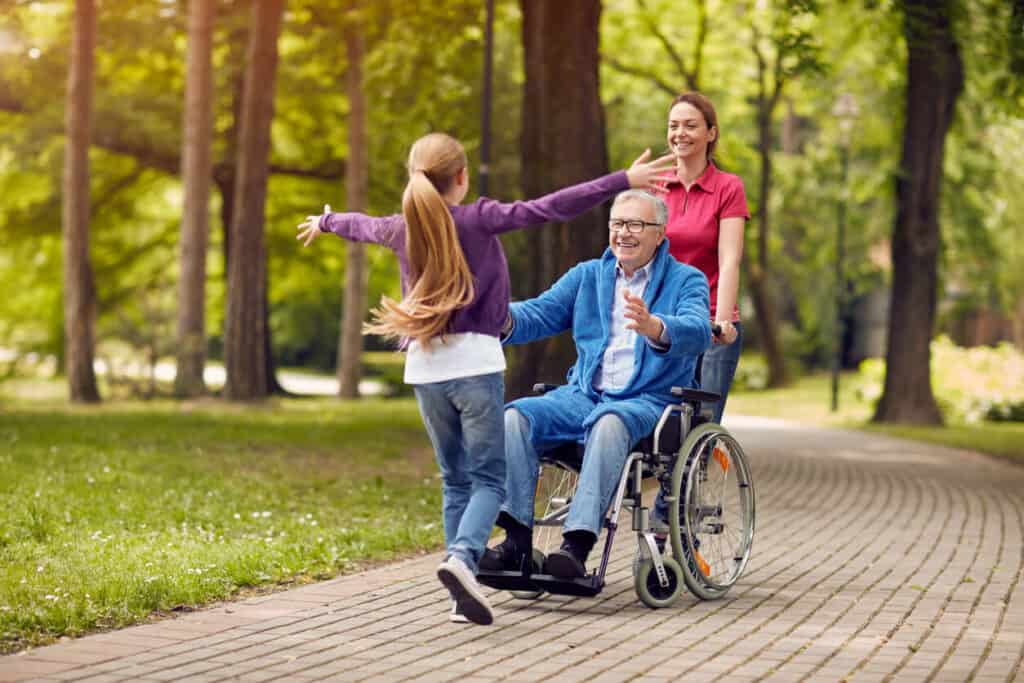
The needs of the mind are as vital as what the physical body requires. Aging brings challenges to seniors that impact their physical and mental health. Hiring a dependable caregiver with enough experience and training is integral in preserving your loved one’s sense of independence and purpose.
A caregiver can foster a positive environment for your loved one where they can stay happy and perceive aging as a privilege rather than a burden. They can deliver personalized care and build meaningful relationships with other family members.
If you’re looking for a caregiver you can depend on to take care of your senior mom or dad, support them in house chores, and assist them with their therapy or exercise, contact us today.




